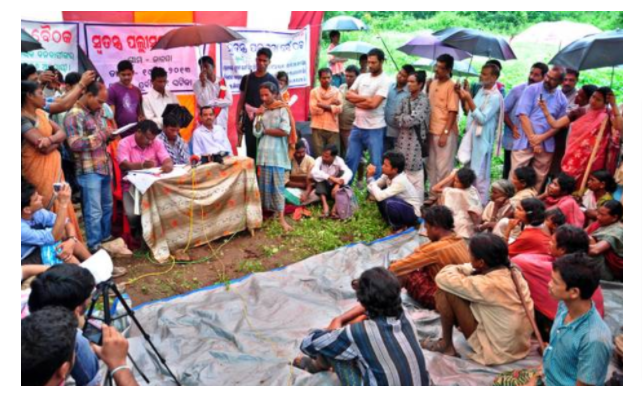Villages are home to a significant portion of India’s population. As a result, the government must carry out constructive rural administration and effectively address their requirements for water, electricity, road linkages, and land records, among other things. In addition, land records must be kept up to date, and disagreements must be resolved. To deal with all of this, an enormous amount of machinery has been developed by the government.
- Indian villages are approximately more than six lakh in number

Using the police force to preserve law and order
Police Station Controlled Area:
- Every police station has a controlled area
- Any theft, accident, injury, conflict, or other crime can be informed or reported to the police by anyone in the area
- It is the station’s police’s responsibility and obligation to inquire about, investigate, and take action in cases under its jurisdiction
Maintenance of Land Records
The Role of Patwari:
- The principal role of Patwari in rural administration is to measure land and maintain land records
- Each Patwari is in charge of a set of villages
- In different parts of the country, the Patwari is referred to as Karchari, Lekhpal, Village Officer, or Kanungo
- The village’s records are maintained and updated by the Patwari
- The Patwari frequently measures agricultural fields
- The Patwari is also in charge of coordinating the collection of land revenue from farmers and informing the government about the crops harvested in this region
- This role of patwari is critical because farmers’ lands may alter crops, or somebody might dig a well somewhere
- The Revenue Department oversees Patwari’s work
Land Records Management System:
A system for collecting and classifying documents on land records, acquiring and managing land records, and adhering to retention criteria is referred to as a land records management system.
- India’s states are separated into districts for facilitating better rural administration
- Under a land records management system, the districts are subsequently divided for land management, and are known by various names such as tehsil, taluka, and so on
- The District Collector is in charge, and the tax officers designated as tehsildars report to him
- They are required to settle disputes
- They also oversee the Patwaris’ work and guarantee that accurate records are maintained and that land revenue is duly collected
- They ensure that farmers can quickly receive a copy of their records, and that pupils may acquire caste certificates, among other things
- The Tehsildar’s office also hears land disputes
The Hindu Succession Amendment Act of 2005
- Men are the majority of landowners, while women work in the fields but do not own agricultural land
- Hindu women in some states were denied a share of their family’s agricultural land
- The father’s fortune was equally distributed among his sons after his death
- According to this new legislation, Hindu households’ sons, daughters, and mothers will all have an equal part of the land
- The same legislation will apply to all of the country’s states and union territories
A significant number of women will benefit from this law.
 Profile
Profile Settings
Settings Refer your friends
Refer your friends Sign out
Sign out











